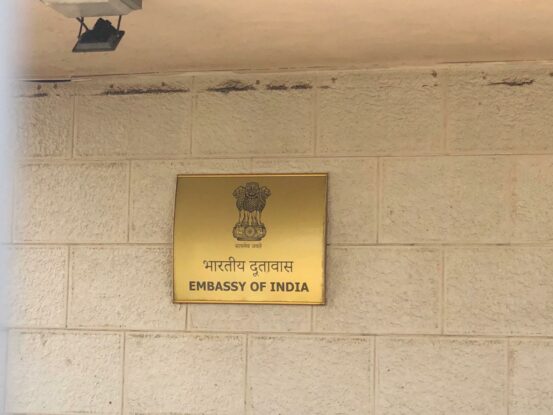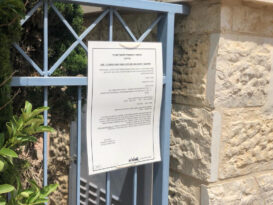With a severe slowdown in the construction industry, the government recently approved a plan that includes a series of measures to encourage activity. Among the most prominent are subsidies totaling NIS 1.1 billion for construction in peripheral cities, to build around 10,000 apartments to be sold at NIS 800,000 for first-time homebuyers, and a large number of foreign workers. For investors and foreign residents, there is no news — high purchase tax rates are set to remain in the coming years.
Four months after the start of the Iron Swords War, the government approved a new housing plan to encourage the construction industry, which is currently in a deep recession, to try to maintain a high volume of construction and prevent a decline in the supply of homes.
The plan, which is supposed to be anchored in the revised budget for 2024 (which has not yet been approved), includes several main items. One of the most prominent of these is increasing the subsidy for land marketing tenders in Israel’s geographic periphery, in a manner that, according to the plan, is supposed to lead to the marketing of at least 10,000 apartments at a reduced price of up to NIS 800,000 in peripheral cities, as part of the government’s Dira b’Hanacha (Apartment at a Discount) campaign, in which thousands of apartments are marketed annually at a discount of hundreds of thousands of shekels to people who do not own a home. It was also determined that at least 20% of the apartments would be designated for soldiers on active reserve duty. The scope of the funding required to implement this plan is NIS 1.1 billion.
Another step included in the plan, which is of even greater urgency, concerns the heavy manpower crisis in the sector since the outbreak of the war, and the termination of the work of some 100,000 Palestinian workers, who constituted the vast majority of its active manpower. In this context, it was decided to increase the quota of foreign manpower for the industry (not Palestinian workers) from 50,000 to 65,000 and today the first 70 workers arrived from India and will immediately integrate into various construction projects across the country. Hundreds more are expected to arrive from India in the coming days, and in parallel, efforts are being made to recruit manpower from other countries. The consequence of these numbers is minimal, since the number of foreign workers in Israel currently stands at 15,000, and it will take months, if not years, before the authorities and contractors succeed in filling the quota, if at all.
It was also decided to increase the number of workers who can be brought in quickly through private manpower companies by an additional 10,000 workers, in addition to the first 10,000 workers that can already come in this way. The approval of this measure led to a political-legal scandal after it became clear that it had not been presented in advance to the ministers, and was quickly approved by the Minister of Finance, who received the endorsement of the Cabinet Secretary, after the Prime Minister and most of the ministers had already abandoned the meeting, and after the legal advisers there told the remaining ministers that they were not entitled to approve the decision in this way. The approval of this legally satisfactory measure led to a sharp confrontation between Attorney General Gali Baharav-Miara and Cabinet Secretary Yossi Fuchs, and brought back to the surface the severe differences of opinion that prevailed until October 6 in the political system on the issue of the rule of law and proper administration, and reminded everyone that unfortunately, these issues have not disappeared.
The plan also includes an allocation of NIS 60 million to encourage employment of Israelis in the construction industry, of which NIS 30 million is for incentive grants for those who choose to work in the industry and an additional NIS 30 million for training.
One of the most interesting details about the plan relates to a measure that was ultimately not included in it, which is increasing the capital gains tax – the tax charged on the increase in the price of an apartment during ownership – on investors. According to the original proposal, extensively reviewed in the weeks preceding the plan’s approval, the tax was supposed to increase gradually from 2026 onwards. The goal was to get investors to “get rid of” their apartments over the next two years to avoid the additional tax, thus maintaining a high supply level in the housing market. However, this move was ultimately not included in the plan, probably rightly so, since a massive increase in the supply of second-hand apartments would have severely harmed contractors, who already find it difficult to sell new apartments.
At the same time, the plan also includes a slap for investors and foreign residents, and that is the decision to keep the purchase tax currently imposed on them, at a high level of 8%, permanently. This is in contrast to the current situation in which the high tax rate was set as a temporary order that was supposed to expire at the end of 2024 when the tax was supposed to return to the 5% level. It seems that the purpose of the move is to signal investors who are waiting for the tax cut to stop waiting, and to make their purchase now. However, at such a tax level, it is not certain that they will rush to do so.
During the press conference at which the plan was presented, Finance Ministry Director General Shlomi Heisler explained the move: “There were many professionals who told us that it would be better to reduce the tax back to 5% to encourage the industry. But ultimately, as you increase demand you raise prices. We’ve worked very hard to stop them and we don’t want to ruin it. We want to maintain the downward trend in home prices.”
This highlights the “Catch-22” situation in which the government finds itself today when on the one hand it wants to stimulate the second most important and largest economic sector in the country (after high-tech) and on the other hand does not wish to harm the trend of falling prices, which came after years of sharp increases. However, with all due respect to the government’s efforts to revive the housing industry, it seems almost impossible until we see a recovery in the Israeli economy, which for many years was one of the strongest and fastest growing in the Western world.
Everybody wants a Buyitinisrael, now more than ever before. Whether you’re thinking about Aliyah, looking for a home or a haven, or want to support the Israeli economy, drop us a line, when you’re ready to talk. Whatever the reason, Buyitinisrael.







